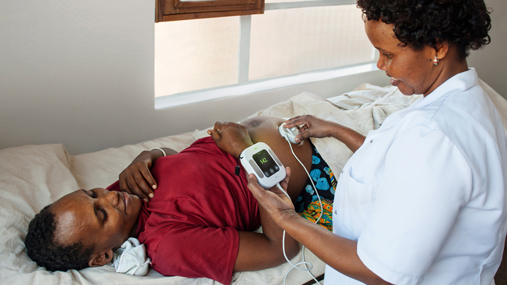About the project
The project is part of the Safer Births Moyo study.
It is argued that while it is fairly easy to introduce new technology into a health care system in low-income countries, it is far more difficult to address barriers to quality of care within the system itself. To fully utilize and benefit from the advantages of new technology it is essential that health care providers are capable and feel confident enough to follow up with the appropriate actions.
The planned studies will generate new knowledge about the adaptation and use of Moyo among health care providers in Tanzania using qualitative research methods. The intention is to gain an in depth insight into non-technical attitudes and customs that shape the use of the technology, interpretation of positive and negative experiences, and overt and covert resistance to behaviour change and relapses.
Enhanced understanding of these factors will be used to guide training modules and further product development with the aim of decreasing barriers to the use of Moyo, and increasing correct obstetric actions once health care providers are alerted of abnormal fetal heart rate. The new knowledge generated from the project will be a contribution in the fight to prevent the 2 million babies who die during labour (fresh stillbirths) and almost 3 million newborn babies who die within their first month of life (neonatal deaths).
Objectives
The overall objective of the PhD project is to describe and understand the transfer of new technology (Moyo) and its adaptation in clinical use among health care workers in Tanzania.
Secondary objectives:
- To assess the factors that influence effective use of Moyo among health care workers.
- To investigate the attitudes that mothers giving birth have about Moyo.
- To describe how the use of Moyo affect the relationship between the woman giving birth and the health care provider assisting her during delivery.
- To understand how the use of Moyo affect health care providers performance.
- To identify various barriers against the introduction and applied use of Moyo, and suggest revisions to the current training module which address these.
- To understand how new technological knowledge in general is transferred between health care workers.
Background
As this study aims at understanding the described phenomena and explore issues related to the use of technological devices among health care workers, a qualitative approach was chosen. Three relative structured qualitative data gathering techniques is used; in-depth interviews focus group discussions and non-participant observation.
Sub-projects
The proposed studies will be conducted in parallel with the Safer Births Moyo studies in Dar es Salaam. At Muhimbili National Hospital, a 2-arm randomized control study, testing the use of Moyo versus a hand-held Doppler for fetal heart rate monitoring is currently being conducted. At Temeke district Hospital, a descriptive study evaluating the use of Moyo and the effects on timely obstetrical actions/referrals and perinatal outcome has just started.
Financing
- Globvac - the Norwegian Research Council
- The Laerdal Foundation for Acute Medicine
- Saving Lives at Birth Grand Challenge
- Stavanger University Hospital
Start - finish
2016 - 2019
